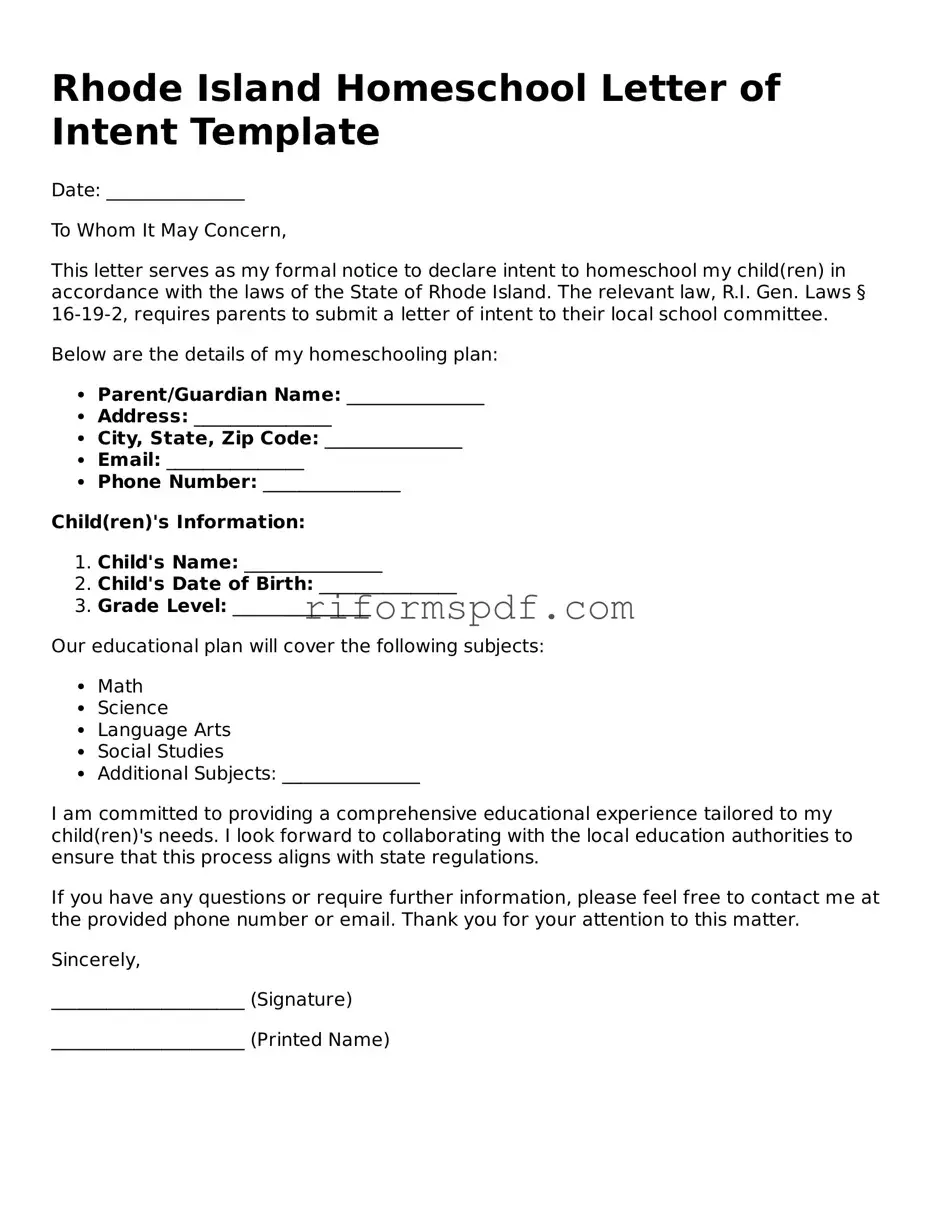Printable Homeschool Letter of Intent Form for Rhode Island
The Rhode Island Homeschool Letter of Intent is a formal document that parents or guardians submit to notify the local school district of their intention to homeschool their child. This form serves as a critical first step in the homeschooling process, ensuring that families comply with state regulations. By completing and submitting this letter, parents take an important step toward creating a personalized educational experience for their children.
Launch Editor

Printable Homeschool Letter of Intent Form for Rhode Island
Launch Editor
Finish the form now and be done
Edit Homeschool Letter of Intent online and skip the paperwork.
Launch Editor
or
⇓ PDF Form
